|
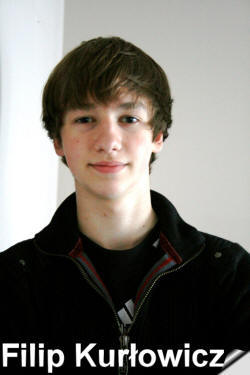
Where did your parents come from and where were you born?
My parents came from Poland,
province zachodniopomorskie, once known as koszalinskie.
They came to Canada in 1988 while I was born in 1994 in Winnipeg,
Manitoba. I have been living in Winnipeg all my life (15 years) and am
still currently living here.
Where did you go for elementary school and now currently in high school?
My mom signed me up for French immersion when I was five years old at
Salisbury Morse Place School. She did it because she wanted me to learn
the two official languages. I had to change schools in grade six because
of my new enrolment in the professional division at the RWB. It was
easier to get rides to the ballet because of the transportation system
there. The school there is a total French school. I left school around
13:45-14:00 and started my dance classes at 14:45. I would finish
dancing around 17:30, and in some cases either 19:00 or 20:30 depending
on extra classes or my schedule. I am now studying at the University of
Winnipeg Collegiate, starting my classes at either 12:30 or 13:30.
During my spare time, I do my homework because I have a very busy
schedule.This way I’m fluent in English, French and Polish.
What does classical ballet have that made you interested in it? What
drove you to chose this school?
My parents signed me up for dance classes when I was 3 years old. In the
beginning, it was finding the beat in the music, co-ordinating
movements, playing games and so forth, so it was really not too much
dancing but learning the steps necessary to start dancing. Later when I
became older, I started dancing ballet and jazz. TO really become a
professional dancer, you have to have discipline. I really did not have
a strong passion for ballet until I was 10 years old, when I
auditioned for the professional division.
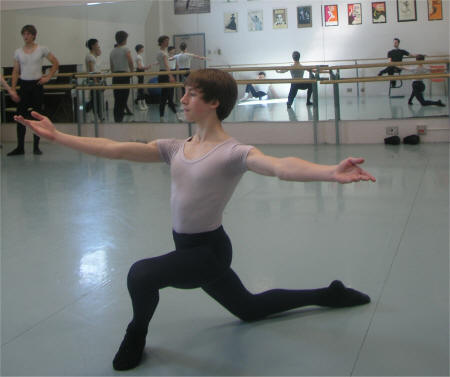
What kind of important traits do you need to become a professional
ballet dancer?
I personally find these three things the prime candidates to being a
professional dancer: you have to be disciplined, open to criticism and
most of all, love to dance. But as well there are many other things that
the teachers are looking for into detail: musicality, length of muscles,
effort, body structure and all kinds of things related to these.
What classes are offered in your ballet school?
We have various different classes offered at the RWB for different age
groups: ballet, coaching, character, historical dancing, pas de deux,
reperatoire, strength training (for boys only), modern, Spanish,
Improvisation, movement composition, conditioning and jazz (during the
summer). We also have exams for almost every class where we are
evaluated by the teachers. We also have three big show events during the
year: Concert Hour, First Steps and In Concert. Sometimes, students are
even picked to play in a company role where they may get too tour with
the company and perform with them.
Do students get scholarships at the RWB?
Yes they do, and for all kinds of reasons. Some students get financial
aid for parents that don’t make much money and is hard to afford their
child to stay in the school. Other scholarships are awarded for talent
or hard work. Another reason, in my case, is if your descended from a
cultural background, like Polish. I was awarded the Nijinski dance
scholarship for 5 years now and I got a Great-West Life scholarship one
year.
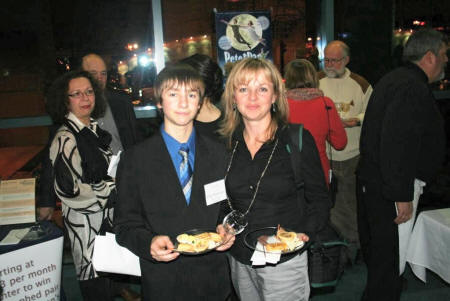
How do you manage your time with school and ballet?
In grade six was the hardest for me because I had to adjust to the
changes in my schedule and how and when I did my homework. For grades
6-8, it was really hard because everything was in French and I had
nobody at home who could help me with my work. My schedule also was a
little messy because we had important classes while I was gone to
ballet. We would have to miss gym (because we did not need it) to
complete the missed work. With the Collegiate, our schedule is very
clean and we only take the classes that are important. The ballet does
not like lazy students and can threaten or even suspend you from ballet
if your marks are too low. The Collegiate is an excellent school and
allows ballet students to work in a very good environment.
How long do you dance at the RWB every week?
I spend approximately 20-24 hours every week at the RWB, so that’s about
3-4 hours every day. Our schedule varies during the year, so we have
different amounts of dancing every week or every month. I dance 6 days a
week, with Sunday as my day off.
How do you take the teachers criticism?
You have to take the teachers criticism as a positive thing. They want
you to feel the pressure that you may really experience in a audition or
company, and want to see how you may either deal with it, to try to
improve yourself.
In what professional performances did you perform in, and what were your
thoughts and opinions on them?
Still in the recreational division as a student, a was chosen to be in
the performance of “Anna Karenina”, with Evelyn Hart.
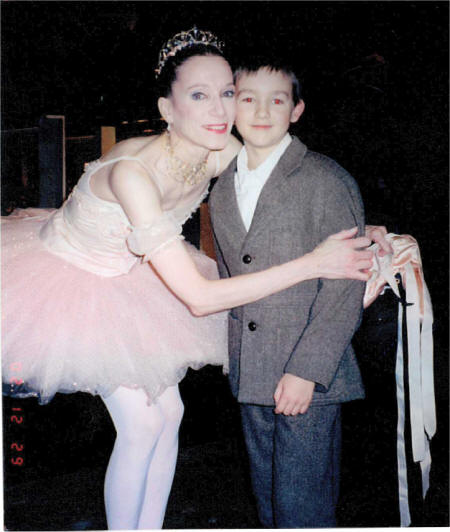
As well, I got chosen to dance a part in Nutcracker as a mounty and
party boy. Later, when I was accepted into the professional division, I
got chosen to dance Dieter in Nutcracker, where I got to fly to Ottawa,
all expenses paid, and dance there with the company. I really felt like
a true professional dancer and artist, because of the experience. I was
11 years of age at the time. One year later I had the opportunity to
dance as Michael in Peter Pan. One year after that, I had another chance
to be in Nutcracker, but this time as Julien, a much more harder and
professional role.
What role would you like to perform as when you are older?
I would really love to dance the role of one of the following ballets:
Basilio for Don Quixote or Ali from Le Corsaire. These two roles I find
are really fun and I would be really proud dancing either one of these
roles.
Who is your favourite dancer?
Well, I guess I have two. My favourite dancer at the RWB is Yosuke Mino.
He has amazing jumps and turns, and is overall a very amazing artist. I
really aspire to be as good as him someday. My other favourite dancer is
not from the RWB, but from Russia: Daniil Simkin. He, I think is one of
the best dancers in the world currently and is touring now with the
American Ballet Theatre.I have never seen anything as good as him and
could only imagine being as good as he is. He is just that good.
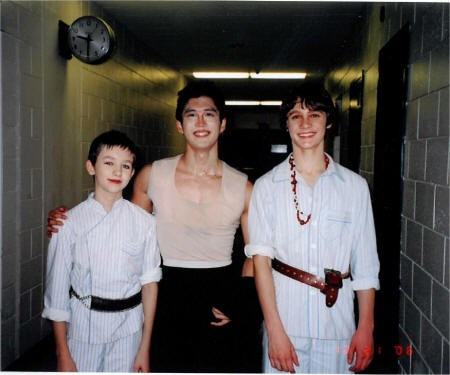
Do you ever regret that you have to work hard in ballet, while others
have more time for themselves?
No, I’m used to it and like the challenge. It’s not like anyone could
start training professionally and for long periods of time at the age of
11. I find that we are unique and are very commited to what we do.
What is your greatest goal to fulfill when you become a true
professional dancer?
To become a famous dancer in either Canada or to go to Europe and dance
with many professionals and world class dancers there. As a dancer, you
have the opportunity to travel and see new places and people, so I’m
looking forward to that in the future.
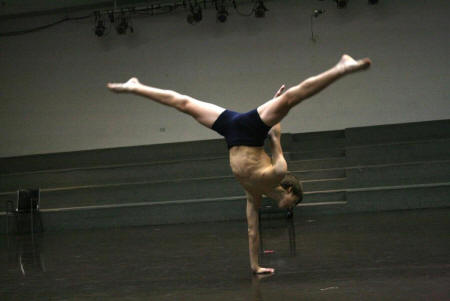
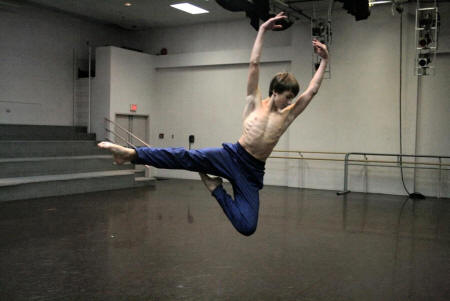
Do you have time for other things than ballet?
I do not have much time to do what I want after ballet and school
really. I have Saturday evening off and the entire Sunday to myself,
otherwise I’m usually doing homework, but I occasionally find some time
to do the things I really want to do, like play guitar for example. I
also take ballroom classes, which are on Saturday, so that also takes
some time out of my free time. During the summer, I have more time to do
the things I want, because I do not have to worry about school. I can
basically do anything I want then, but I still dance during July, so I
really only get August off completely.
I would like to take that opportunity and invite you to” Ballet in the
Park” which every year ands our summer secion and is at Assiniboin Park,
this year July 22,23,24. | 
